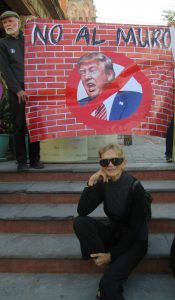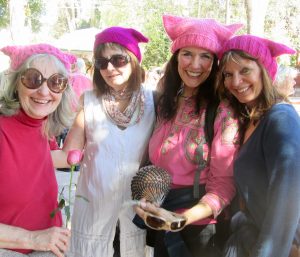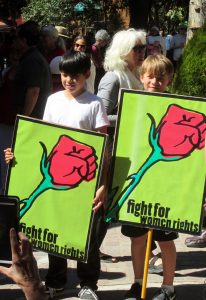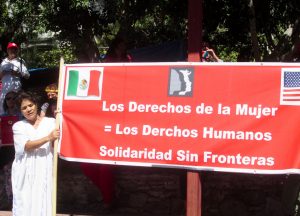Friday’s gathering was funereal, and the dress code was black. We — a group of maybe 200-or-so gringos, old enough to clearly remember JFK’s assassination, when the bottom dropped out of our youthful political naivete — assembled in front of the soaring Parroquia Church in the central Jardin here in San Miguel de Allende, at the exact hour that Trump was being inaugurated, to quietly express to our Mexican hosts: He’s NOT our President.

It was a peaceful demonstration. Participants held banners and placards (“No to the Wall,” “Vile Trump,” and much more) wore politically expressive black T-shirts (“Reinvent Democracy” was just one), and sang “We Shall Overcome.”
We walked slowly around the Jardin, while Mexican onlookers cheered, applauded, and gave thumbs up. It felt good to stand up for these deeply held beliefs, to let our Mexican friends and neighbors know we’re with them, but it was indeed a sad day.

Twenty-five hours later, though, on a sunny, clear afternoon in the beautiful Parque Juarez, only a few blocks from the Jardin, the mood had changed entirely, and the dress code was white and red. This was a momentous occasion, one of hundreds of “sister” marches around the world in support of the Women’s March on Washington, D.C., which drew, altogether, roughly three million people.
An estimated 3,000 participants here — mostly women of all ages, but also many men and children, expats as well as Mexicans — filled the park with hope and joy in a balloon-festooned rally and walk in support of women’s rights worldwide. Trump’s name was hardly mentioned, as if he were already old news. This was a bright, new day.
Here are just a few of the dozens of photos I took at yesterday’s joyful, hope-filled gathering:

Women’s Solidarity Rally and Walk in San Miguel



